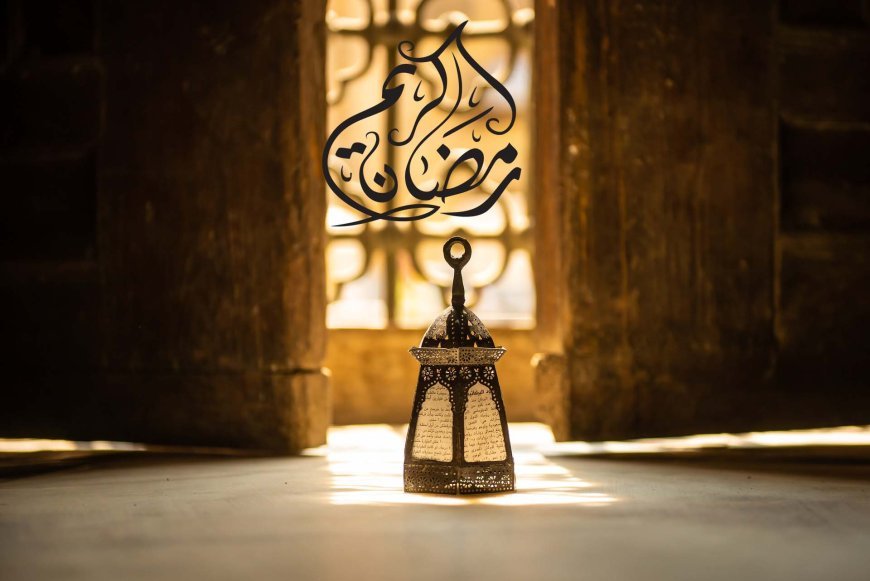Ramadan Kareem! The Ultimate Guide to Fasting for Beginners
Discover the secrets to successful fasting during Ramadan Kareem with our comprehensive guide for beginners. From tips to recipes, we've got you covered. Learn more now!

Ramadan is the ninth month of the Islamic calendar and is a month of fasting by Muslims worldwide. Fasting during Ramadan is considered one of Islam's five pillars and an essential act of worship. It is a time for self-reflection, spiritual growth, and faith strengthening.
If you are a beginner looking to fast during Ramadan, it can be challenging to know where to start. This guide will provide you with all the information you need for a successful and fulfilling Ramadan experience.
What is Ramadan?
Ramadan is the month during which Muslims fast from sunrise to sunset. Fasting during Ramadan involves abstaining from food, drink, and other physical needs from dawn until sunset. The fast is broken at sunset with a meal called iftar. The meal before dawn is called suhoor. The fast is observed for 29 or 30 days, depending on the sighting of the crescent moon.
Why do Muslims Fast During Ramadan?
Fasting during Ramadan is one of the five pillars of Islam. It is a religious obligation for Muslims to fast during this month. Fasting during Ramadan is to gain self-discipline and self-control and to increase one's spirituality. Fasting is also a way to develop empathy for those less fortunate and become more grateful for what one has.
Read More
Who Should Fast During Ramadan?
Fasting during Ramadan is mandatory for all healthy adult Muslims who have reached the age of puberty. Pregnant women, nursing mothers, and those who are ill or traveling are exempt from fasting. However, they must make up for the missed fasts later.
How to Prepare for Ramadan?
Preparing for Ramadan involves both physical and mental preparation. Physically, preparing your body for the fast is essential by eating healthily and drinking plenty of water before Ramadan begins. Mentally, setting goals for the month and having a positive mindset is imperative.
Tips for Fasting During Ramadan
Start Preparing Early
It is important to start preparing for Ramadan a few weeks in advance. Start by gradually reducing your food intake and increasing your water consumption. This will help your body adjust to the upcoming changes.
Have a Healthy Suhoor
Suhoor is a meal that is eaten before dawn. It is important to have a healthy and filling meal that will sustain you throughout the day. Foods that are high in protein and complex carbohydrates are ideal for suhoor.
Stay Hydrated
It is essential to stay hydrated during the fast. Drink plenty of water during Suhoor and after iftar. Avoid drinking sugary drinks and caffeine, as they can lead to dehydration.
Plan Your Meals
Planning your meals can help you avoid overeating and eat healthy, balanced meals. Ensure you include plenty of fruits, vegetables, and whole grains.
Take Naps
It is normal to feel tired during the day while fasting. Taking short naps can help you feel refreshed and energized.
Stay Positive
Ramadan is a time for spiritual growth and self-reflection. Staying positive and focusing on your goals for the month is important.
Break Your Fast with Dates
Breaking your fast with dates is a tradition that Muslims practice worldwide. Dates are a rich energy source and are a great way to break your fast.
Give to Charity
Giving to charity is an important part of Ramadan. It is a way to help those less fortunate and become more grateful for what one has.
Connect with Family and Friends
Ramadan is a time for family and community. It is a time to connect with loved ones and strengthen relationships. Make an effort to spend time with family and friends during Ramadan, whether it's through sharing meals or participating in community events.
Stay Active
Staying active during Ramadan can help improve your overall health and well-being. During the day, it is important to engage in light exercises, such as walking or stretching. Avoid strenuous exercise as it can lead to dehydration and exhaustion.
Practice Patience and Forgiveness
Ramadan is a time to practice patience and forgiveness. It is important to be patient with yourself and those around you. Forgive those who have wronged you and seek forgiveness for your own mistakes.
Read the Quran
Reading the Quran during Ramadan is an important way to increase your spirituality and deepen your faith. Make an effort to read a portion of the Quran each day during Ramadan.
Attend Taraweeh Prayers
Taraweeh prayers are special prayers that are held in mosques during Ramadan. Attending these prayers can help you feel more connected to the community and deepen your spiritual experience.
Practice Gratitude
Practicing gratitude is an important part of Ramadan. Take time each day to reflect on what you are grateful for and express your gratitude to others.
Seek Knowledge
Ramadan is a time to seek knowledge and learn more about your faith. Attend lectures and classes at your local mosque or read books about Islam to deepen your understanding.
Conclusion
Fasting during Ramadan is a deeply spiritual and rewarding experience. By following these tips and guidelines, you can have a successful and fulfilling Ramadan experience as a beginner. Remember to stay positive, stay hydrated, and practice patience and forgiveness. Ramadan Kareem!
FAQs
Can I fast if I am not Muslim?
Fasting during Ramadan is mandatory for healthy adult Muslims, but non-Muslims can also choose to fast to experience and understand the significance of Ramadan.
Can I drink water during the fast?
During the fast, Muslims abstain from all food and drink from dawn to sunset, including water.
What if I accidentally eat or drink during the fast?
Accidentally eating or drinking during the fast does not break the fast, but it is recommended to stop immediately and continue the fast.
Can I exercise during Ramadan?
Yes, it is possible to exercise during Ramadan, but it is recommended to do so during non-fasting hours and to listen to your body's needs.
Can I make up for missed fasts after Ramadan?
Yes, those who are exempted from fasting or miss a day of fasting can make up for it at a later time. It is recommended to do so as soon as possible after Ramadan.







